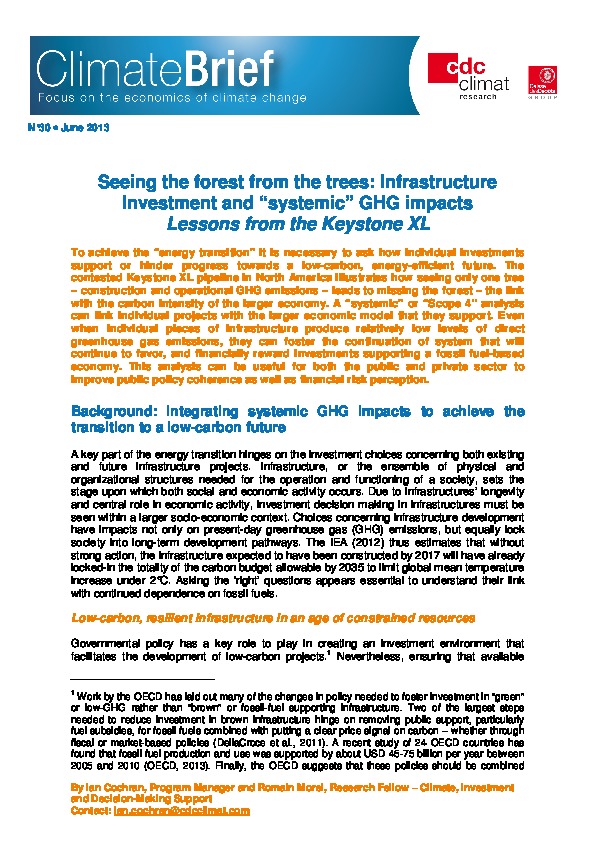Seeing the forest from the trees: Infrastructure Investment and “systemic” GHG impacts – Lessons from the Keystone XL
Achieving the “energy transition”, it is necessary to ask how individual investments support or hinder progress towards a low-carbon, energy-efficient future. This requires a a systemic approach – or “scope 4” analysis.
As demonstrated by the Keystone XL Oil pipeline project in North America, even when individual pieces of infrastructure emit relatively low levels of direct greenhouse gases, they can foster the continuation of system that will continue to favor, and financially reward, investments supporting a fossil fuel-based economy.
Effectively addressing greenhouse gas emissions and fully understanding the impact of individual projects – both as individual elements and lynch pins of a larger system – will require a wider scope of integration into both project development and financial decision making than currently occurs.
